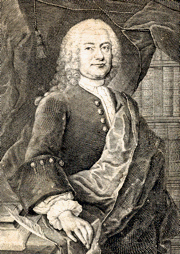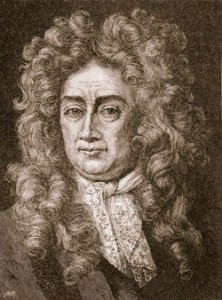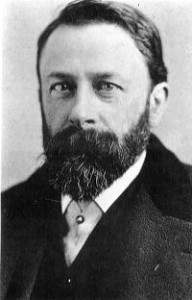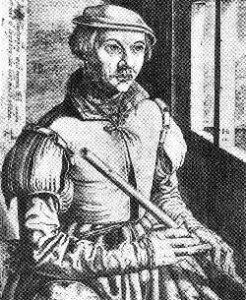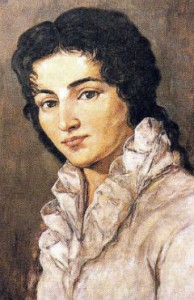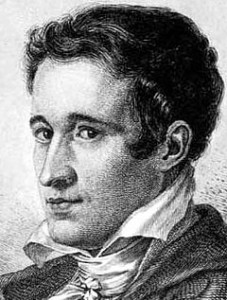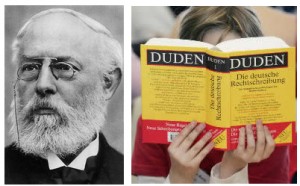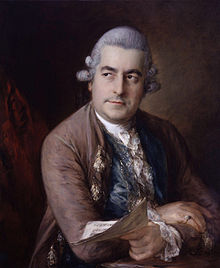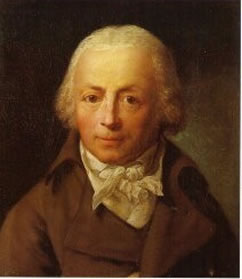January 9, 1674 Birth of Reinhard Keiser (1674-1739) in Weissenfels, Germany. An early composer of operas, his style starts with Baroque and ends with Rococo. He studied music in Leipzig but then went to Hamburg where he wrote 120 operas. January 9, 1803 Birth of Christopher Memminger in Nayhingen, Germany. As a young man he immigrated … [Read more...]
January 8 in German History
January 8 Feast Day of St. Severinus (ca. 410 – 482) St. Severinus was born in about 410 in North Africa. He traveled to the area which is now Austria in about 453 to be of assistance to those afflicted by the attacks of the Huns. He founded a series of monasteries in the area to attempt to restore a certain order and organization after the … [Read more...]
January 7 in German History
January 7, 1742 Birth of the enlightenment philosopher, Christian Garve. Garve was a professor at the University of Leipzig. He was noted as a moral philosopher and the translator to German of Cicero's De Officiis and the works of Edmund Burke and Adam Smith. January 7, 1830 Birth of Albert Bierstadt (1830-1902) in Solingen, Germany. … [Read more...]
January 6 in German History
January 6 Three Kings Day (Dreikönigentag) January 6, 1486 Birth of Martin Agricola (pseudonym of Martin Sore) in Schwiebus (now in Poland). He was a German music scholar and composer in Magdeburg. He was the first to give attention to the musical needs of the Reformation. January 6, 1821 Birth of Jakob Frohschammer in … [Read more...]
January 5 in German History
January 5, 1762 Birth of Constanze Weber (1762-1842) in Zell, Austria. Weber was a soprano who married Wolfgang Amadeus Mozart in 1782 in Vienna. After her husband's death she oversaw the publication of his music. In 1809 she married Georg Nissen, who wrote the first biography of Wolfgang Amadeus Mozart. Nissen died in 1826 and Konstanze … [Read more...]
January 4 in German History
January 4, 1428 Death of Friedrich I (also called Friedrich der Streitbare) in Altenburg, Germany. Friedrich became the Elector of Saxony in the Holy Roman Empire. He assisted the emperor, Sigismund, in a campaign against the Bohemian adherents of Jan Hus in 1420. January 4, 1675 Birth of Bl. Liberatus (Johannes Laurentius Weiß) in … [Read more...]
January 3 in German History
January 3, 1521 Pope Leo X publishes his Papal Bull Decet Romanum pontificem, condemning Martin Luther and officially excommunicating the Augustinian monk for burning Leo's previous bull Exsurge Domine. January 3, 1571 Death of Joachim II Hektor. Joachim II Hektor was the Elector of Brandenburg at the time of the Reformation. He … [Read more...]
January 2 in German History
January 2, 1729 Birth of Johann Daniel Titius (1729-1796) in Konitz, Germany (now in Poland). Titius was an early astronomer who was educated at the University of Leipzig and became a professor at the University of Wittenberg (1756). His calculations expressing the distance between the planets and the sun were confirmed by J. E. Bode in 1772 … [Read more...]
January 1 in German History
January 1, 329 Kontantinus (Konstantin's Son) becomes Caesar of the Western Roman Empire. His capital is Trier. January 1, 1076 The Holy Roman Emperor, Heinrich IV, persuades 26 bishops to refuse obedience to the Pope. January 1, 1484 Ulrich Zwingli is born in Wildhaus, Switzerland. Zwingli was the most influential church … [Read more...]
December 31 in German History
December 31, 1105 Heinrich V arrests his father Heinrich IV, forces him to abdicate and himself becomes the Holy Roman Emperor (crowned in Rome in 1111). December 31, 1747 Birth of Gottfried August Bürger in Molmerswende bei Halberstadt, Germany. The poet, Bürger was one of the leaders toward the Romantic movement in German literature. … [Read more...]
- « Previous Page
- 1
- …
- 31
- 32
- 33
- 34
- 35
- …
- 37
- Next Page »
